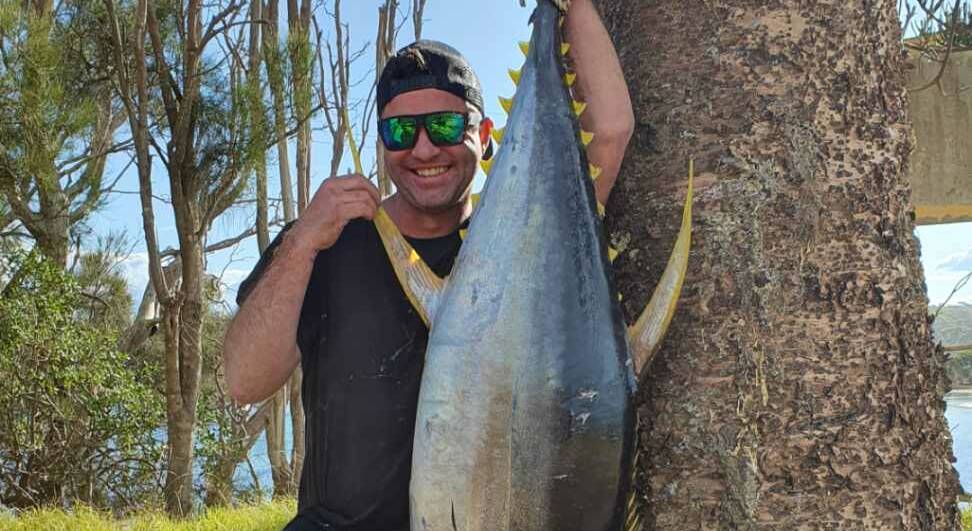An attack that killed a Canberra pub patron has been described as “a relatively low-level assault” as barristers for the assailant argue his sentence is “too heavy”. Justice Michael Elkaim last year jailed Kerry Kourpanidis for seven-and-a-half years over the July 2020 manslaughter of Warren Hordpenko, 44. The ACT Supreme Court judge ordered the 37-year-old Griffith tradesman to serve at least three years and nine months of that term without parole. Kourpanidis and Mr Hordpenko had been strangers until the fateful night, when the victim drunkenly touched the killer’s daughter on the face and made inappropriate comments at the Kingston Hotel. The tradesman took the young girl home and put her to bed before returning to the hotel, having been criticised by his partner over his failure to stand up to Mr Hordpenko. Kourpanidis went back into the pub for just 46 seconds, during which time he tackled Mr Hordpenko off a bar stool in the pool room and punched him repeatedly in the head. An autopsy later found the victim had died as a result of an artery tearing during the attack. Kourpanidis, who has been behind bars since a few days after the incident, wore a suit in the ACT Court of Appeal on Tuesday as he challenged the severity of his sentence. One of his barristers, Stephen Odgers SC, argued it had been “too heavy in all the circumstances” for Justice Elkaim to nominate 10 years as a starting point for Kourpanidis’ sentence before applying a 25 per cent discount for the killer’s guilty plea. “it is a relatively low-level assault,” Mr Odgers said. “It had terrible, tragic consequences. But in terms of many manslaughters, it is relatively low level.” Another of Kourpanidis’ barristers, Margaret Jones SC, added that the 10-year starting point was inappropriate because it had been used for much more serious manslaughters. Mr Odgers also argued that Justice Elkaim had erred by describing Kourpanidis’ actions as “vigilante conduct” and rejecting the suggestion provocation should mitigate the offence. MORE COURT AND CRIME NEWS: He said “vigilante conduct” needed to be planned or premeditated, but there was no evidence that Kourpanidis had arrived back at the pub with a plan to physically attack. An inference could be drawn that Kourpanidis had simply intended to “tell [Mr Hordpenko] off”, he said, only for him to snap and impulsively attack the victim upon arrival. Mr Odgers added that it did not matter that the attack had not occurred until about an hour after Mr Hordpenko’s inappropriate comments. “An offence may still be a result of provocation … even if there is a time gap,” he said. ACT Director of Public Prosecutions Shane Drumgold SC countered that any provocation to commit the offence would have manifested itself when the inappropriate comments were made to Kourpanidis’ daughter. He said Kourpanidis’ lawyers seemed to have instead “aggregated a series of events” that occurred prior to the attack. These included the comments, the girl subsequently having trouble getting to sleep, Kourpanidis’ partner criticising him, and the 37-year-old’s girlfriend tearfully declaring she was going to write Mr Hordpenko a letter and deliver it to him on behalf of all women. “This snowballing group of emotions is now completely independent of the actions of the victim in this matter,” Mr Drumgold told the court. The ACT’s top prosecutor also questioned why, given the hour or so Kourpanidis had to reflect before launching the fatal assault, the killer had not reacted more rationally. He suggested that instead of going back to the hotel, Kourpanidis could have stayed at home and calmed down with a cup of tea. “Same conduct by the victim, completely different result,” Mr Drumgold said. This suggestion prompted a woman in the public gallery to scoff and remark “what a joke” before walking out of the courtroom. A full bench of the Court of Appeal, comprised of Justice David Mossop, Justice Wendy Abraham and Acting Justice Stephen Walmsley, has reserved its decision. Our journalists work hard to provide local, up-to-date news to the community. This is how you can continue to access our trusted content:
An attack that killed a Canberra pub patron has been described as “a relatively low-level assault” as barristers for the assailant argue his sentence is “too heavy”.
The ACT Supreme Court judge ordered the 37-year-old Griffith tradesman to serve at least three years and nine months of that term without parole.
Kourpanidis and Mr Hordpenko had been strangers until the fateful night, when the victim drunkenly touched the killer’s daughter on the face and made inappropriate comments at the Kingston Hotel.
The tradesman took the young girl home and put her to bed before returning to the hotel, having been criticised by his partner over his failure to stand up to Mr Hordpenko.
An autopsy later found the victim had died as a result of an artery tearing during the attack.
Kingston Hotel killer Kerry Kourpanidis. Picture: Instagram
Kourpanidis, who has been behind bars since a few days after the incident, wore a suit in the ACT Court of Appeal on Tuesday as he challenged the severity of his sentence.
One of his barristers, Stephen Odgers SC, argued it had been “too heavy in all the circumstances” for Justice Elkaim to nominate 10 years as a starting point for Kourpanidis’ sentence before applying a 25 per cent discount for the killer’s guilty plea.
“it is a relatively low-level assault,” Mr Odgers said.
“It had terrible, tragic consequences. But in terms of many manslaughters, it is relatively low level.”
Another of Kourpanidis’ barristers, Margaret Jones SC, added that the 10-year starting point was inappropriate because it had been used for much more serious manslaughters.
Mr Odgers also argued that Justice Elkaim had erred by describing Kourpanidis’ actions as “vigilante conduct” and rejecting the suggestion provocation should mitigate the offence.
He said “vigilante conduct” needed to be planned or premeditated, but there was no evidence that Kourpanidis had arrived back at the pub with a plan to physically attack.
An inference could be drawn that Kourpanidis had simply intended to “tell [Mr Hordpenko] off”, he said, only for him to snap and impulsively attack the victim upon arrival.
Mr Odgers added that it did not matter that the attack had not occurred until about an hour after Mr Hordpenko’s inappropriate comments.
“An offence may still be a result of provocation … even if there is a time gap,” he said.
ACT Director of Public Prosecutions Shane Drumgold SC countered that any provocation to commit the offence would have manifested itself when the inappropriate comments were made to Kourpanidis’ daughter.
He said Kourpanidis’ lawyers seemed to have instead “aggregated a series of events” that occurred prior to the attack.
Manslaughter victim Warren Hordpenko. Picture: Supplied
These included the comments, the girl subsequently having trouble getting to sleep, Kourpanidis’ partner criticising him, and the 37-year-old’s girlfriend tearfully declaring she was going to write Mr Hordpenko a letter and deliver it to him on behalf of all women.
“This snowballing group of emotions is now completely independent of the actions of the victim in this matter,” Mr Drumgold told the court.
The ACT’s top prosecutor also questioned why, given the hour or so Kourpanidis had to reflect before launching the fatal assault, the killer had not reacted more rationally.
He suggested that instead of going back to the hotel, Kourpanidis could have stayed at home and calmed down with a cup of tea.
“Same conduct by the victim, completely different result,” Mr Drumgold said.
This suggestion prompted a woman in the public gallery to scoff and remark “what a joke” before walking out of the courtroom.
A full bench of the Court of Appeal, comprised of Justice David Mossop, Justice Wendy Abraham and Acting Justice Stephen Walmsley, has reserved its decision.
Our journalists work hard to provide local, up-to-date news to the community. This is how you can continue to access our trusted content:
read more at © The Canberra Times
Views: 1

